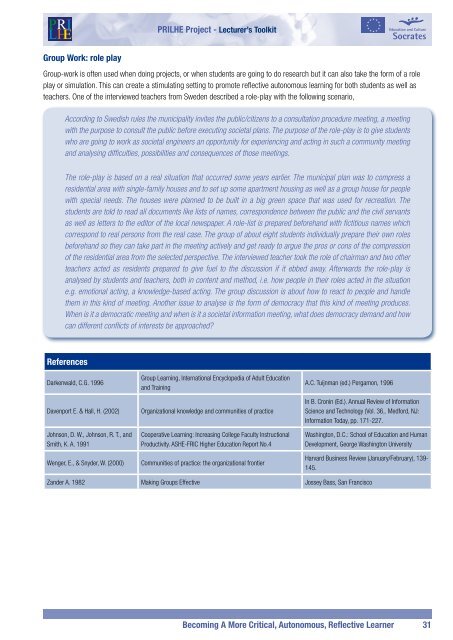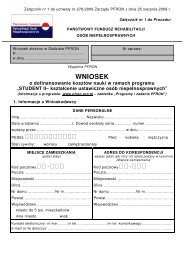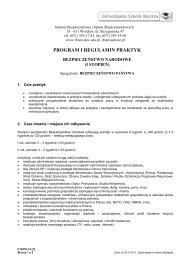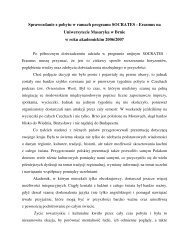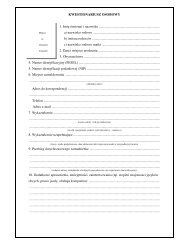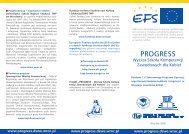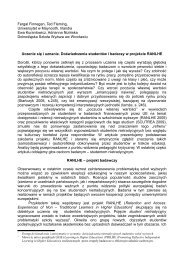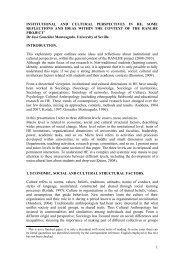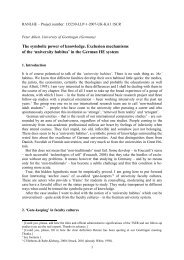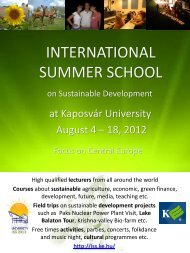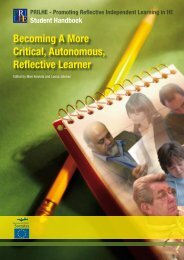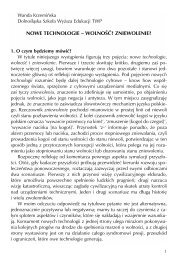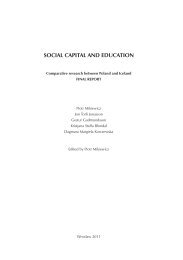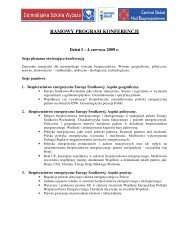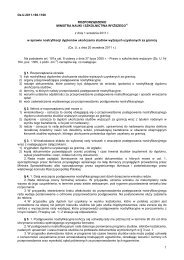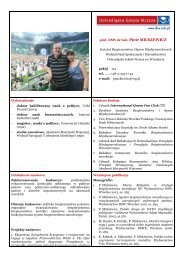Becoming A More Critical, Autonomous, Reflective Learner
Becoming A More Critical, Autonomous, Reflective Learner
Becoming A More Critical, Autonomous, Reflective Learner
You also want an ePaper? Increase the reach of your titles
YUMPU automatically turns print PDFs into web optimized ePapers that Google loves.
PRILHE Project - Lecturer’s Toolkit<br />
Group Work: role play<br />
Group-work is often used when doing projects, or when students are going to do research but it can also take the form of a role<br />
play or simulation. This can create a stimulating setting to promote reflective autonomous learning for both students as well as<br />
teachers. One of the interviewed teachers from Sweden described a role-play with the following scenario,<br />
According to Swedish rules the municipality invites the public/citizens to a consultation procedure meeting, a meeting<br />
with the purpose to consult the public before executing societal plans. The purpose of the role-play is to give students<br />
who are going to work as societal engineers an opportunity for experiencing and acting in such a community meeting<br />
and analysing difficulties, possibilities and consequences of those meetings.<br />
The role-play is based on a real situation that occurred some years earlier. The municipal plan was to compress a<br />
residential area with single-family houses and to set up some apartment housing as well as a group house for people<br />
with special needs. The houses were planned to be built in a big green space that was used for recreation. The<br />
students are told to read all documents like lists of names, correspondence between the public and the civil servants<br />
as well as letters to the editor of the local newspaper. A role-list is prepared beforehand with fictitious names which<br />
correspond to real persons from the real case. The group of about eight students individually prepare their own roles<br />
beforehand so they can take part in the meeting actively and get ready to argue the pros or cons of the compression<br />
of the residential area from the selected perspective. The interviewed teacher took the role of chairman and two other<br />
teachers acted as residents prepared to give fuel to the discussion if it ebbed away. Afterwards the role-play is<br />
analysed by students and teachers, both in content and method, i.e. how people in their roles acted in the situation<br />
e.g. emotional acting, a knowledge-based acting. The group discussion is about how to react to people and handle<br />
them in this kind of meeting. Another issue to analyse is the form of democracy that this kind of meeting produces.<br />
When is it a democratic meeting and when is it a societal information meeting, what does democracy demand and how<br />
can different conflicts of interests be approached<br />
References<br />
Darkenwald, C.G. 1996<br />
Davenport E. & Hall, H. (2002)<br />
Johnson, D. W., Johnson, R. T., and<br />
Smith, K. A. 1991<br />
Wenger, E., & Snyder, W. (2000)<br />
Group Learning, International Encyclopedia of Adult Education<br />
and Training<br />
Organizational knowledge and communities of practice<br />
Cooperative Learning: Increasing College Faculty Instructional<br />
Productivity. ASHE-FRIC Higher Education Report No.4<br />
Communities of practice: the organizational frontier<br />
A.C. Tuijnman (ed.) Pergamon, 1996<br />
In B. Cronin (Ed.). Annual Review of Information<br />
Science and Technology (Vol. 36,. Medford, NJ:<br />
Information Today, pp. 171-227.<br />
Washington, D.C.: School of Education and Human<br />
Development, George Washington University<br />
Harvard Business Review (January/February), 139-<br />
145.<br />
Zander A. 1982 Making Groups Effective Jossey Bass, San Francisco<br />
<strong>Becoming</strong> A <strong>More</strong> <strong>Critical</strong>, <strong>Autonomous</strong>, <strong>Reflective</strong> <strong>Learner</strong> 31


